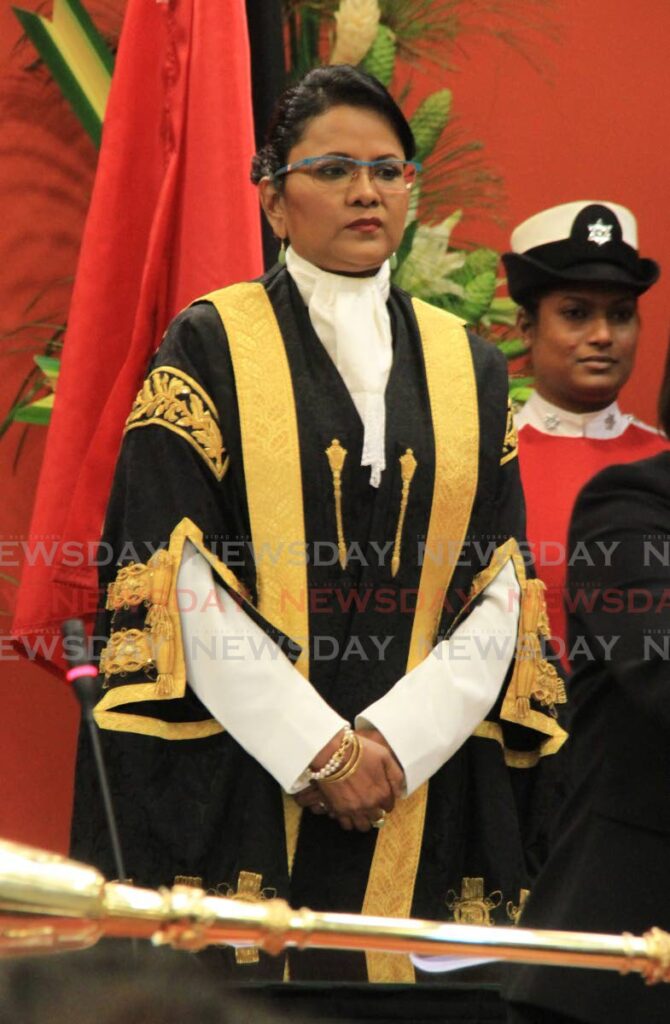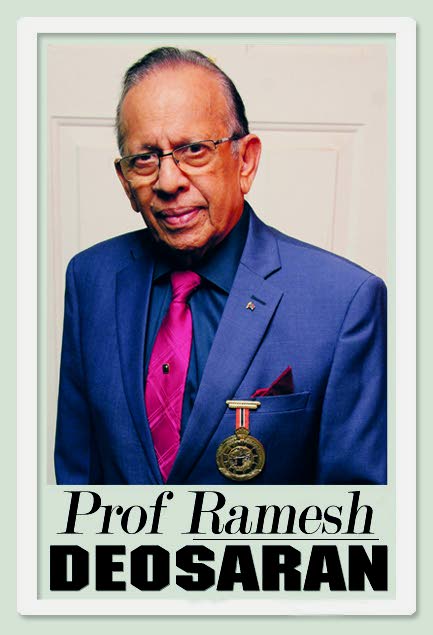Politics of the presidency

After weeks of unprecedented controversy, our seventh president, Christine Kangaloo, was predictably elected by the Electoral College (majority vote) last Friday. The tumultuous controversy exposes once again the tensions between the country’s constitution and political realities. The UNC members and numerous citizens expressed objections to the former Senate president’s nomination mainly on the basis of “political bias and political affiliation,” that is, to the PNM. It was also the process.
Certainly, Ms Kangaloo is not to be blamed. Why then not re-examine the system which gives any ruling party, in effect, the power to appoint the president? (A nomination for president must be signed by “12 or more members of the House of Representatives.”)
As PM Dr Keith Rowley noted in defense, the Constitution is quite clear. It states in short that a citizen, aged 35 years or more, residing in the country for ten years, “is qualified to be nominated for election as President.” The framers of the Constitution also allow for a member of the Senate or House of Representatives to be elected as president. The Constitution says nothing explicitly about political independence, party affiliation or political bias.
In fact, the Opposition proposed its own candidate Israel Rajah-Khan, SC, who also got his share of public support. The country remained politically divided. So much so that citizens now wonder what the relationship between the new president and the dissatisfied opposition would be like. It really shouldn’t be so. There are many important issues on which the president and opposition must consult. Even in this, the persistent perception, fairly or unfairly, is that the president remains “obligated” through the process. How can this perception be cleared?
Isn’t it time for the country to have a different constitutional and political framework to enable increased transparency, accountability and more effective representation? Can’t we democratise the presidency? We just can’t carry on so. Robust transparency in a lively democracy comes with legalising political diversity as happens in the US. What you see is what you get – direct voting representation, public hearings and the transparent display of political diversity. Democracy is the continued contestation of ideas and interests in the jostling for political power. Not trying to hide or escape it. We keep calling for “political unity” especially with crime which in itself is a hot political issue – often the gateway to losing or winning power.

So why the prolonged heated controversy? The central issue revolves around the concept and practise of “independence.” The Constitution says nothing about how “independent” the nominated person or the president should be. And this is where democratic politics gets a morality of its own – beyond the constitution.
This is so mainly because of the large spaces left outside the Constitution for executive prerogatives and discretion with the historical understanding that such allowances would be used to serve, protect and remedy where the law cannot reach. However, that such political allowances have been regularly breached remains one of the major flaws of democracy. It depends too much on human weaknesses. So much so, that with the added option that “almost anybody could be a minister,” executive power within democracies is increasingly being questioned.
As long as the parliament is structured as it is, as long as the Electoral College is what it is, so long would large sections of the population perceive the president as potentially biased. What about, as an example, if the entire population vote for a president, thereby giving the elected president “the power of the people” while removing perception of bias or of political subordination. The presidency must be democratised. Of course, such a “direct vote” system will require further constitutional reforms, for example, the structure of parliament, electoral system, etc. Let’s go for it. Curiously, amidst all the concerns and political quarrels, we hear nothing from the parties about reforming the system to accommodate the political realities. Colonised political timidity persists.
Look, since 1962 and even after 1976, we have been living lives of political hypocrisy. No ruling political party today would elect a President, House Speaker or Senate President whose loyalty is in deep doubt.


Comments
"Politics of the presidency"